Introduction to Guzheng Songs
300 views · Organized by 钟离 on 2022-01-28
There are five ancient guzheng songs: "High Mountains and Flowing Water", "Guangling San", "Pingsha Falling Wild Goose", "Three Lanes of Plum Blossoms", and "Eighteen Beats of Hu Jia". It is mainly composed of panel, bottom plate, zither edge, zither head, Yueshan, yards, piano nails, sound holes and strings.
"High Mountains and Flowing Water" comes from the Jin State during the Spring and Autumn Period and the Warring States Period, a story between a man named Yu Boya and Zhong Ziqi's bosom friend. Later, Zhong Ziqi unfortunately died of an illness. Before he died, he left a last word that he would build the tomb by the river, and when they met on the fifteenth day of the eighth lunar month, he would listen to Yu Boya's qin. He was deeply saddened to hear the news of the passing of Zhiyin, so Yu Boya came to Zhong Ziqi's grave and played the ancient song "High Mountains and Flowing Water" mournfully.
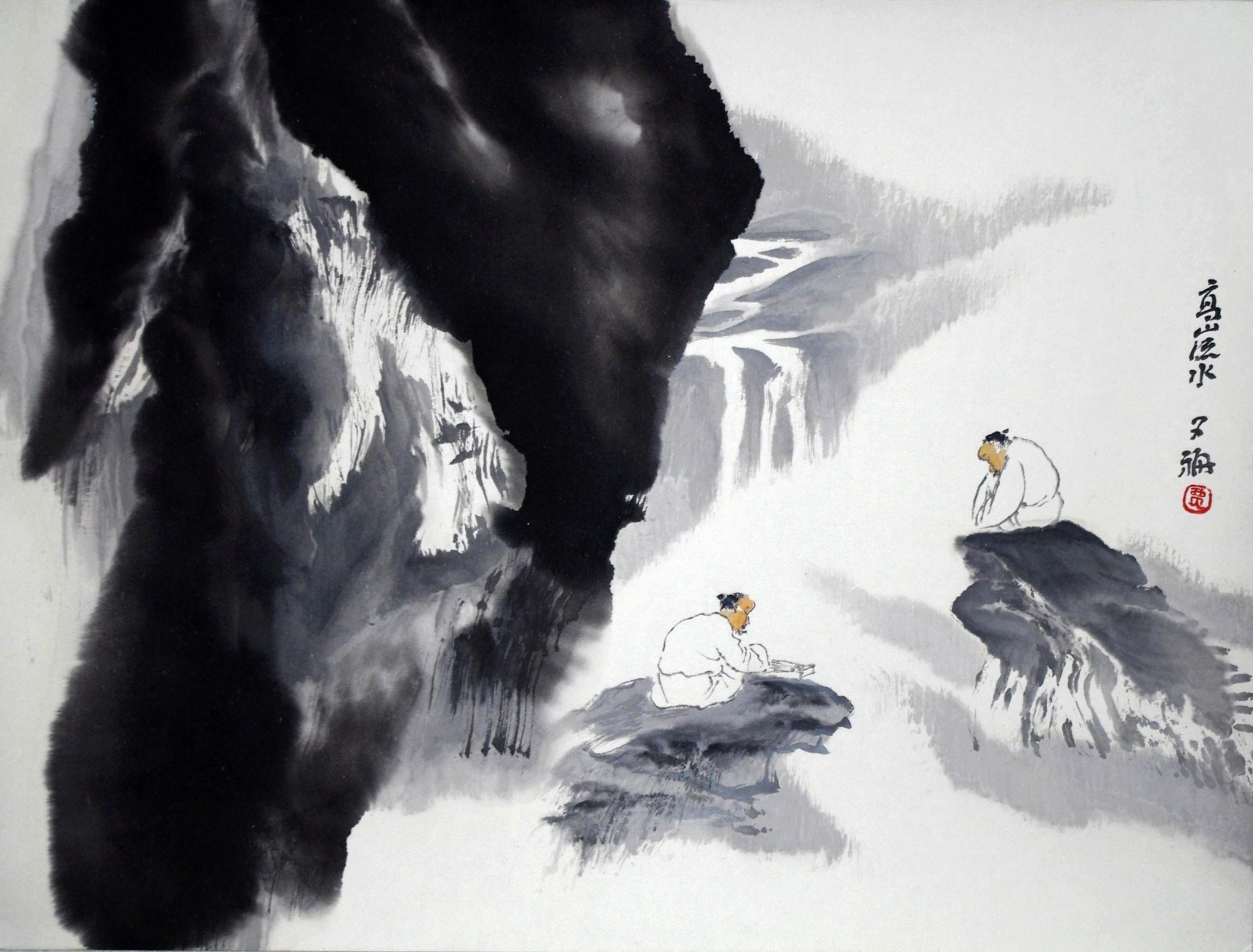
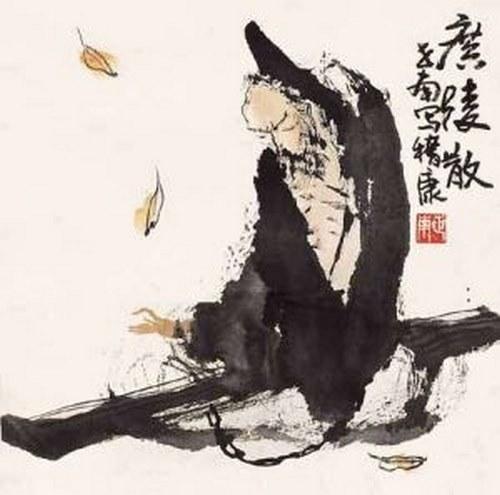
"Pingsha Luoyan" is also known as "Yan Luopingsha" or "Pingsha", the author is unknown. After its publication, it has been loved by qin masters, widely circulated, and has many versions. It is one of the most popular qin pieces. For the understanding of Quqing, some describe the autumn scenery; some embody the ambition of Huhong; some express the feeling that the world is not as dangerous as the wild goose. The tone and tone are quiet and beautiful, there is movement in stillness, the melody is undulating, continuous, and beautiful.
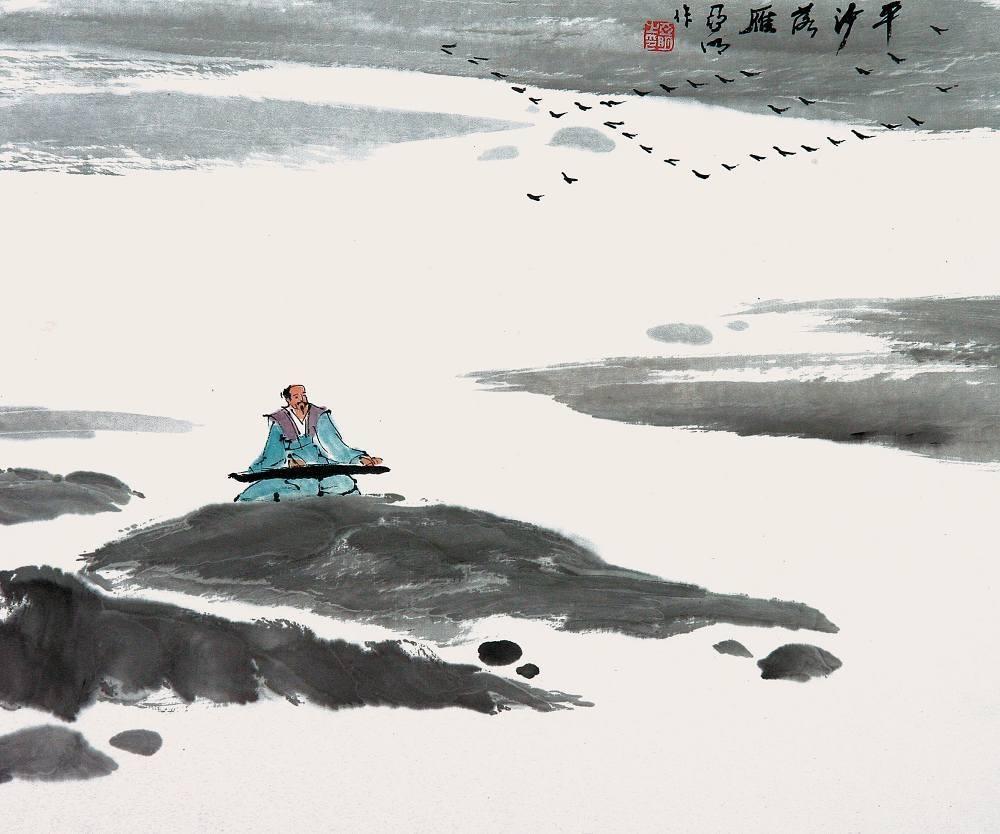
"Three Lanes of Plum Blossoms" is a song that borrows objects to cherish the feelings. Through the white, fragrant and cold-resistant characteristics of plum blossoms, it praises people with noble sentiments. do".
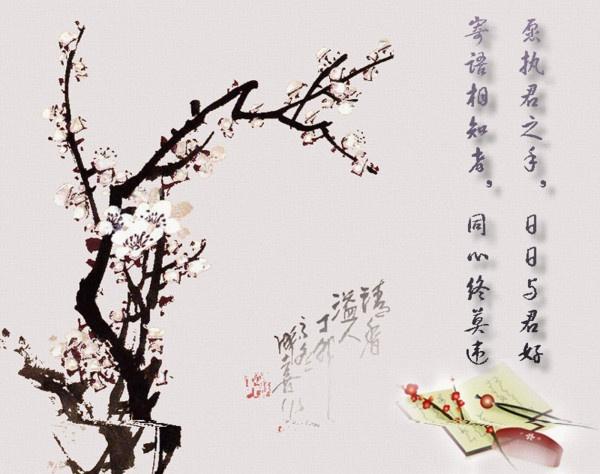
"Eighteen Shots of Hu Jia" At the end of the Han Dynasty, Cai Yan (Wen Ji), the daughter of Cai Yong, a famous writer and guqin master, was captured by the Huns during the military chaos, and stayed in the South Huns and Zuo Xian as his concubine, and gave birth to two children. . Later, Cao Cao sent someone to bring her back, and she wrote a long poem, narrating her tragic life experience and the feelings of homesickness and other children. Emotional sadness and excitement, very touching. Eighteen beats means eighteen songs. And because the poem was written by her feeling Hu Jia's lamentation, it is called "Hu Jia Eighteen Beats" or "Hu Jia Ming".
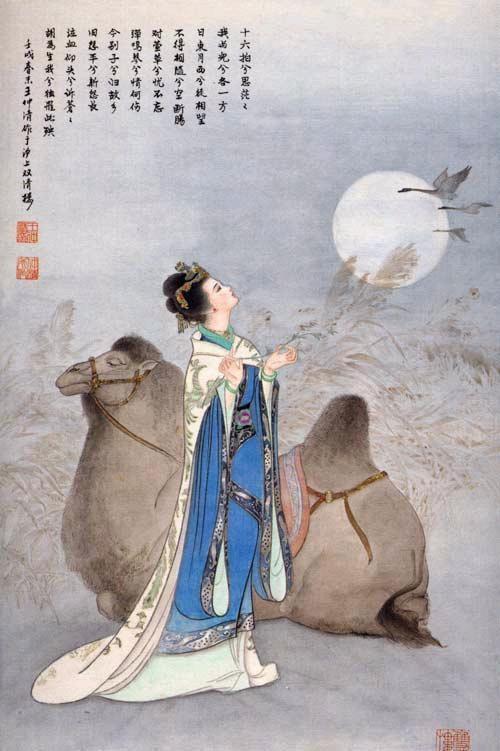
Involving musical instruments
Guzheng (pinyin: Gǔ Zhēng), also known as Hanzheng and Qinzheng, is an ancient national musical instrument of the Han nationality and is popular all over China. It is often used for solo, duet, instrumental ensemble and accompaniment of song and dance, opera and folk art. Because of its wide range, beautiful timbre, rich playing skills and strong expressiveness, it is known as the "King of Music", also known as "Oriental Piano", and is one of the unique and important national musical instruments in China.
Guess you like
Organized by 关谷奇迹 on 2025-04-11
In the world of traditional Chinese music, guzheng pieces stand out for their melodious and graceful tones as well as their profound cultural heritage. Among the many captivating guzheng masterpieces, "Jianchang Moon" shines with its unique artistic charm, becoming a brilliant pearl in the hearts of classical music lovers.
read >>
Organized by vespa on 2025-03-18
Among the numerous guzheng pieces that have been passed down to the present day, "Xunfeng Qu" stands out with its melodious tune, profound emotions, and delicate depiction of natural beauty, making it a rare classic in the hearts of many guzheng enthusiasts.
read >>
Organized by 长恭 on 2025-02-28
"Yuanban Sanliu", as a classic guzheng piece deeply imbued with the charm of Jiangnan silk and bamboo music, not only carries rich historical and cultural connotations but also showcases the development and transformation of guzheng art in different eras.
read >>
Organized by 湛鹰 on 2025-02-21
In the vast starry sky of traditional Chinese music, there is a particularly dazzling star, which is the famous guzheng piece "Dry Thunder". This piece not only conquers the hearts of countless listeners with its unique artistic charm, but also has become one of the important works for guzheng players to showcase their skills.
read >>
Organized by 拙 on 2025-01-05
As a traditional musical instrument with wood as its main material, Guzheng is very sensitive to changes in the environment, especially in the cold and dry winter, and improper maintenance may lead to damage such as string pine and wood cracking.
read >>
 渝公网安备 50010702504639号
渝公网安备 50010702504639号